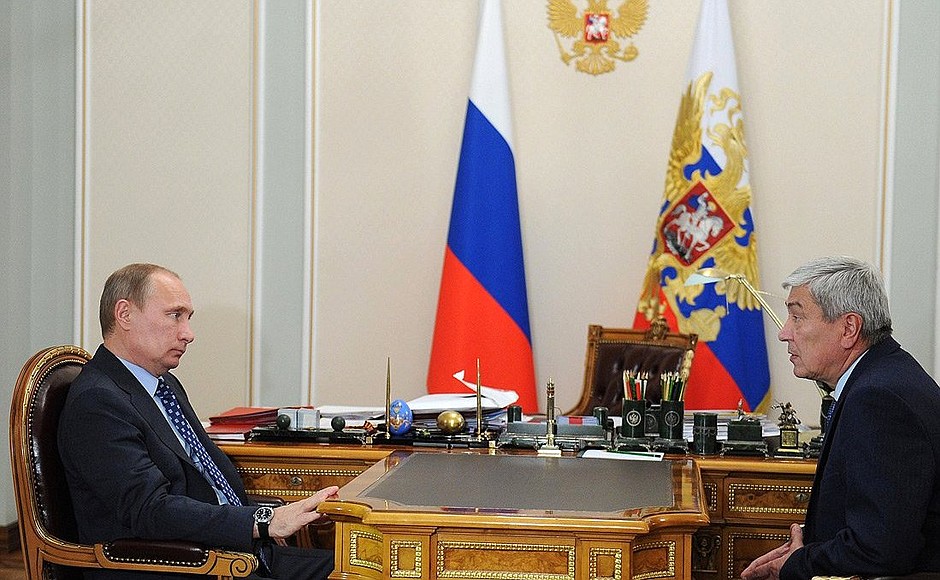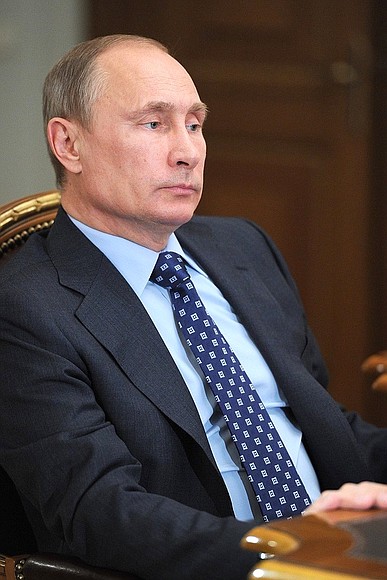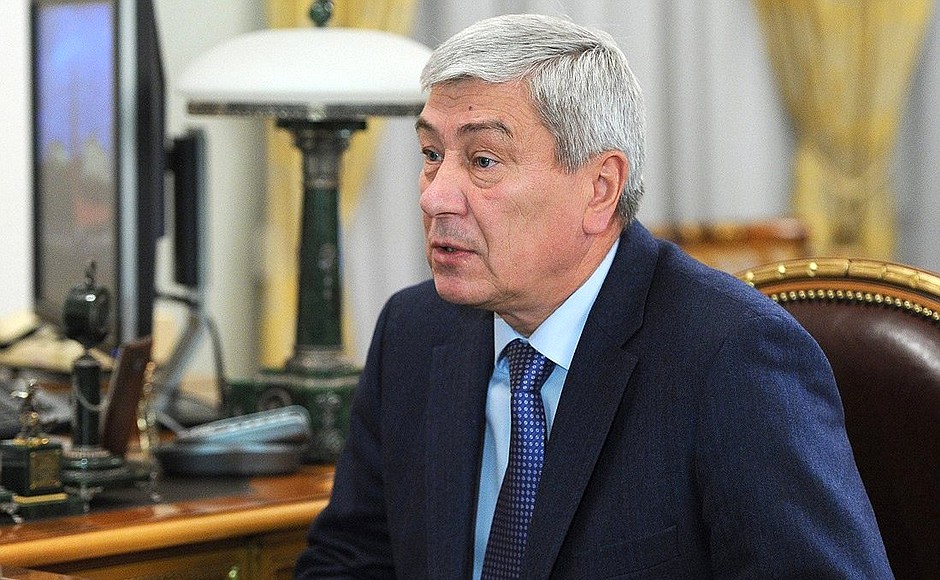President of Russia Vladimir Putin: Mr Chikhanchin, since the mega-regulator was set up within the Central Bank system, preliminary analysis of the information received so far indicates that overall financial discipline is improving in the relevant organisations. How do you see the situation? You are in constant contact with the Central Bank and with other financial institutions, and so what is your view of things?
Head of the Federal Service For Financial Yury Chikhanchin: Mr President, first of all, it is indeed the case that the situation on the financial market has improved considerably since the law on the mega-regulator and the law on preventing illegal financial operations were passed. Acting in concert with the other supervisory bodies and law enforcement agencies, we have of late succeeded in shutting down several shadow markets that were involved in money laundering and capital flight, including for dubious deals and operations, and we have also improved the state of affairs in the sense that we now have the chance to work as a mega-regulator not just with the banks but with other sectors too, such as the securities market and the insurance sector.
At the moment, we are working together to find solutions that will help us to identify risks in financial sectors and take preventive measures to make sure that these risks do not become reality. As an example of this work, the Central Bank has revoked the licences of several banks that were violating the laws.
The demand for money is slightly lower at the moment. Most important is that this enables us to address the tasks you gave in your instructions. On the subject of your instruction concerning the Far East, in particular the issue of lowering the air fares, we have studied several airports’ activity. These airports are in private hands, but we think there is insufficient control over spending there, with the result that the owners abuse the system by transferring part of the funds they receive as interest-free loans to their affiliated companies and transfer money to their companies’ employees. This inevitably pushes up the cost of plane tickets. Today, we are working with the law enforcement agencies to take measures to clean up this situation.
The mega-regulator’s establishment and the law on preventing illegal financial operations are also very important in that they enable Russia to fulfil an important international obligation, namely, reporting to FATF (Financial Action Task Force). We have essentially joined the elite club of countries that completely meet all international anti-money laundering standards. I think this is a big achievement. Above all, I would like to thank you, because you pushed for this law. We have essentially launched two very good mechanisms now that we, the mega-regulator, and all the financial institutions use. The first of these is to examine who is the final beneficiary. This was an initiative that Russia put forward at the G8 and G20 too. We think this will be an effective mechanism.
Second is that we have given financial organisations the chance to stop dubious operations, not let them go through, reject them. This also helps to clean up the system and gives us the chance to maintain our platform, especially during Russia’s presidency [of FATF].
We are also working on resolving a number of other issues through this international platform. This year, we are handing over the presidency of the Eurasian group that follows the FATF model. The Eurasian Group was established on our initiative and brings together the Central Asian countries, China, and India. We have succeeded in establishing anti-money-laundering mechanisms in the Central Asian countries, set up financial intelligence services, and make sure that none of these countries ends up on the black lists. We think this is a big step forward.
Also acting on the decision you took together with all of the presidents of the CIS countries, an agreement was signed to establish the Council of Heads of Financial Intelligence. One of the primary tasks will be to ensure financial institutions’ transparency.
<…>


